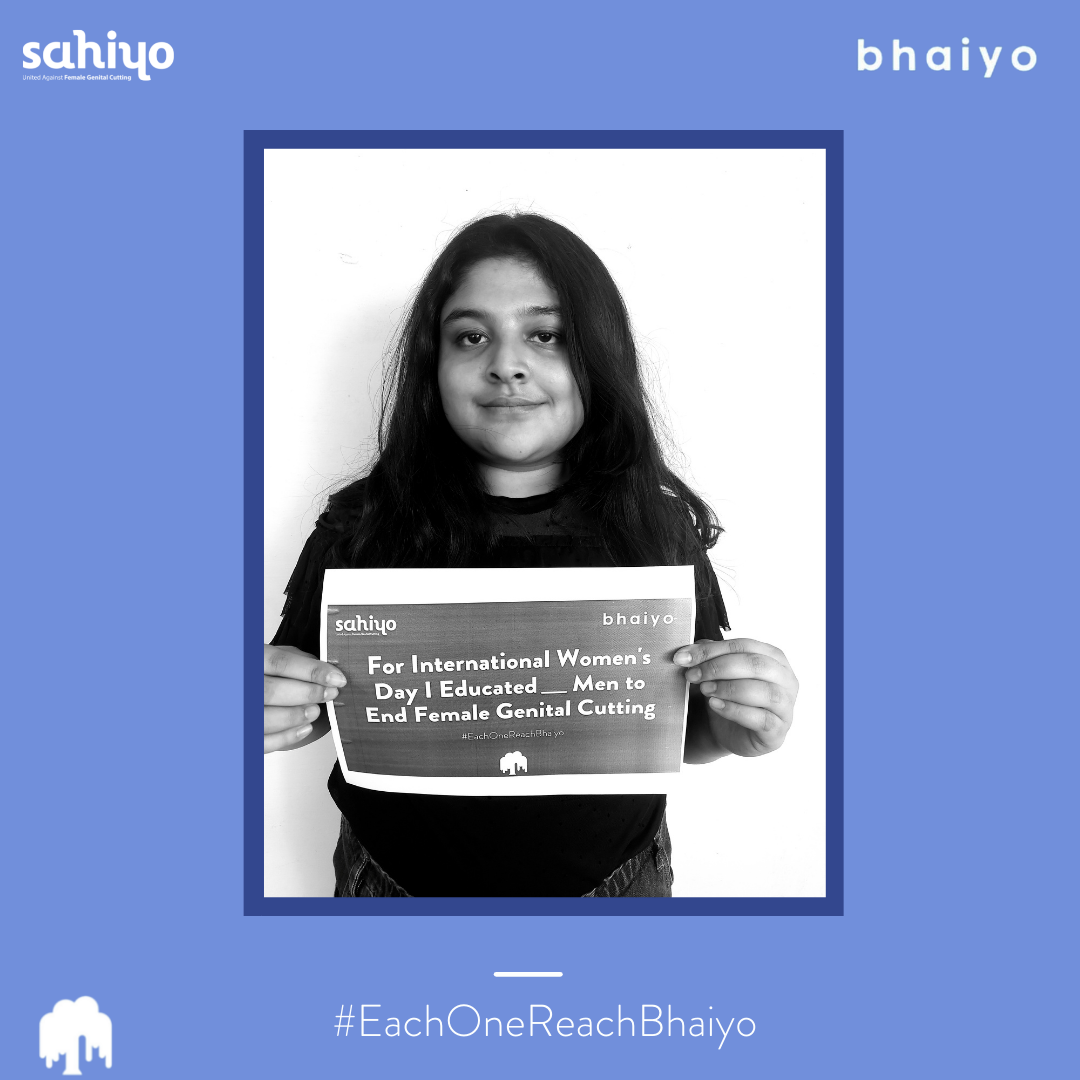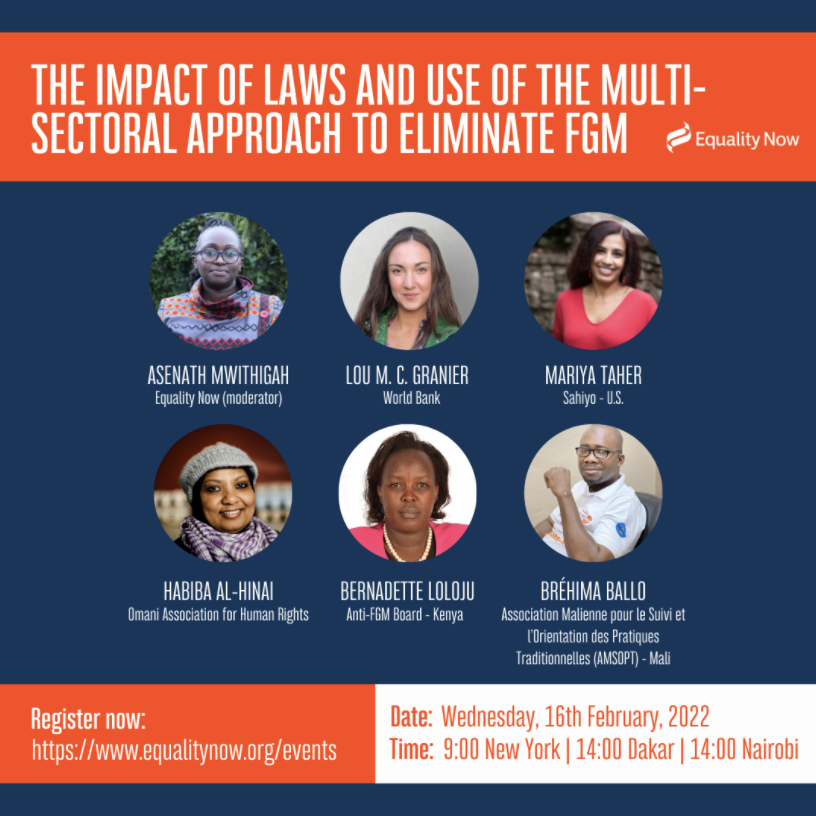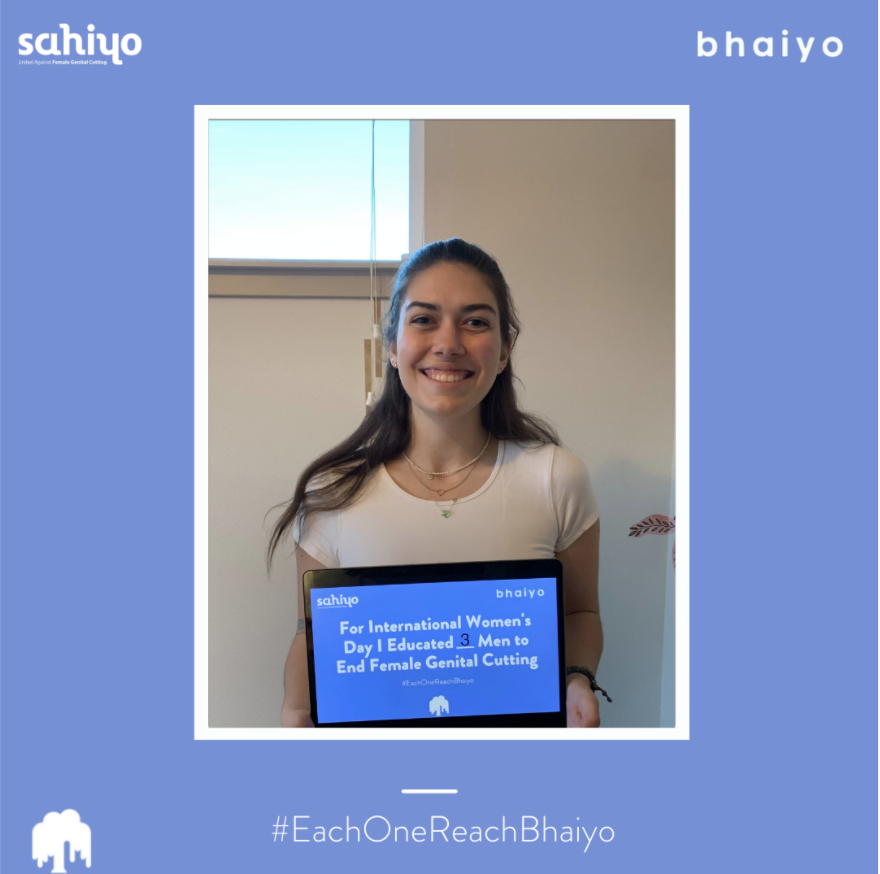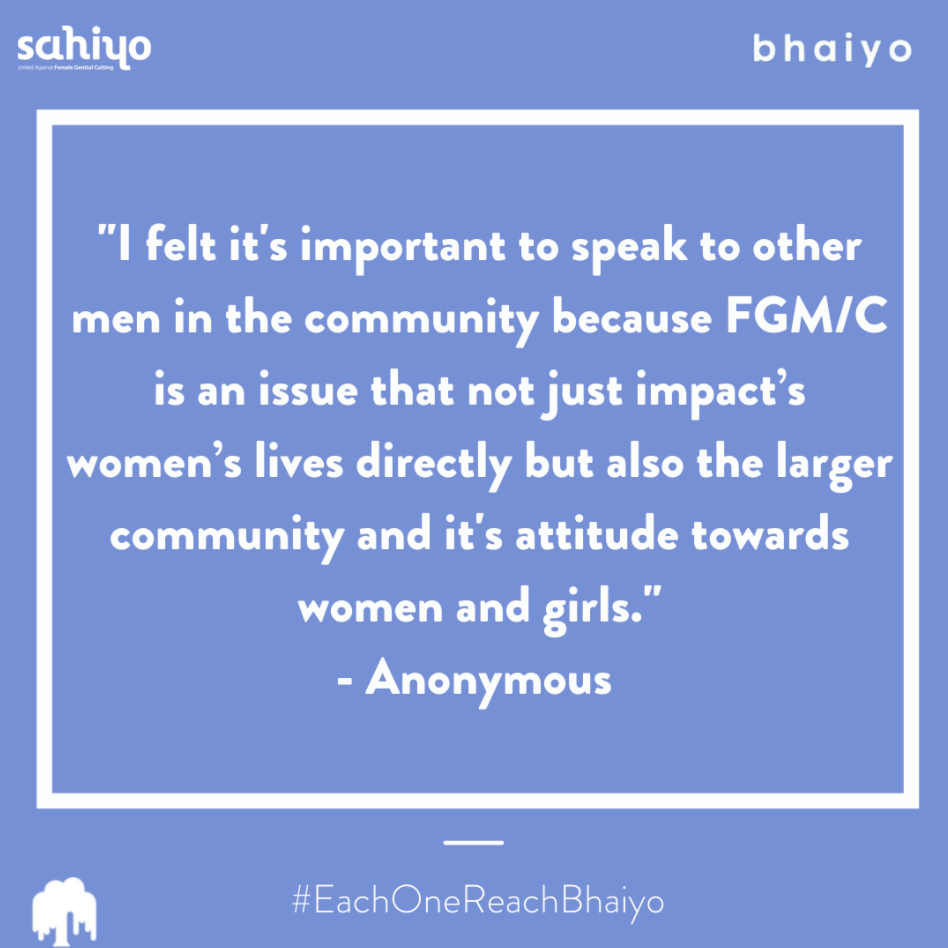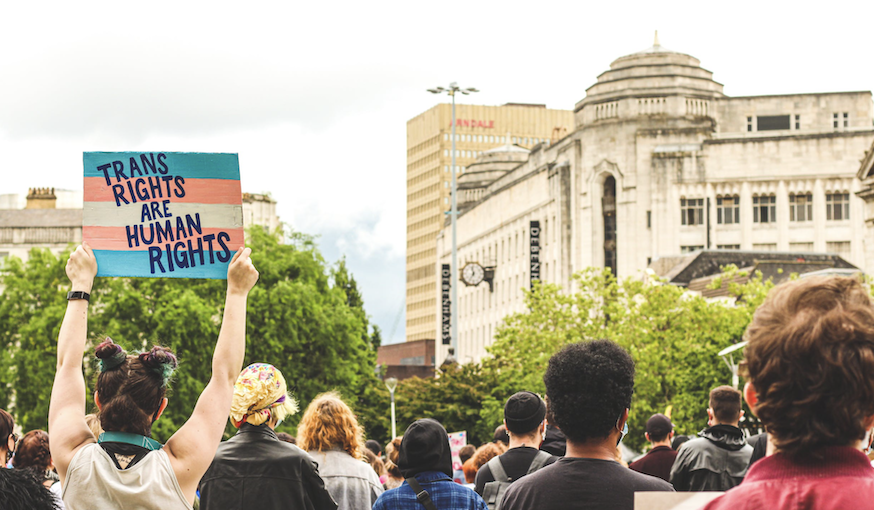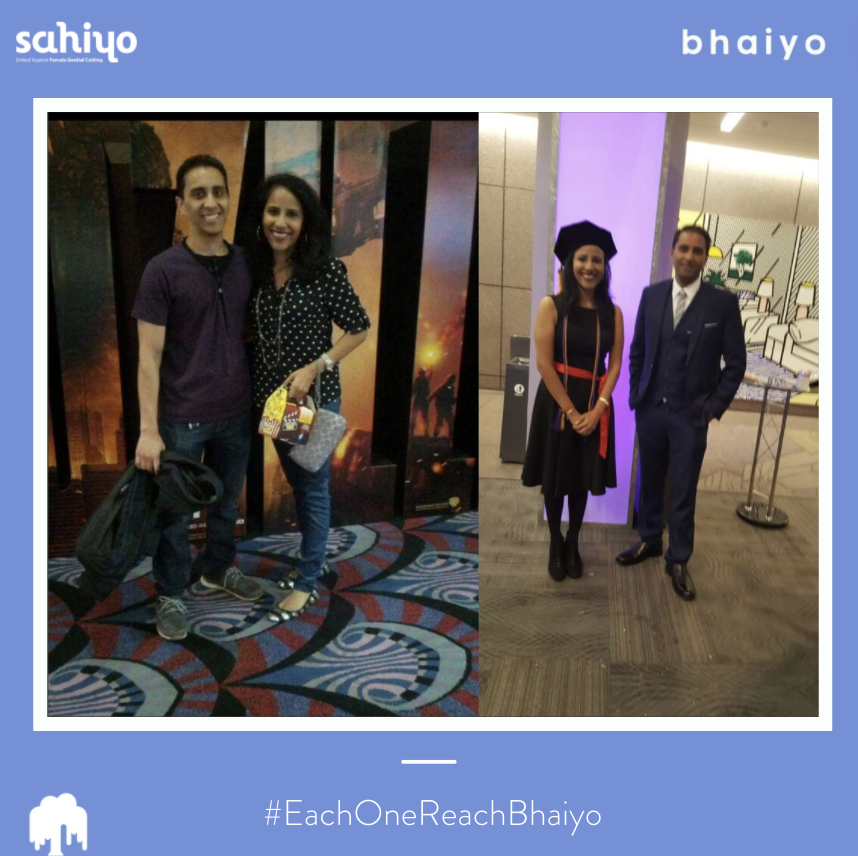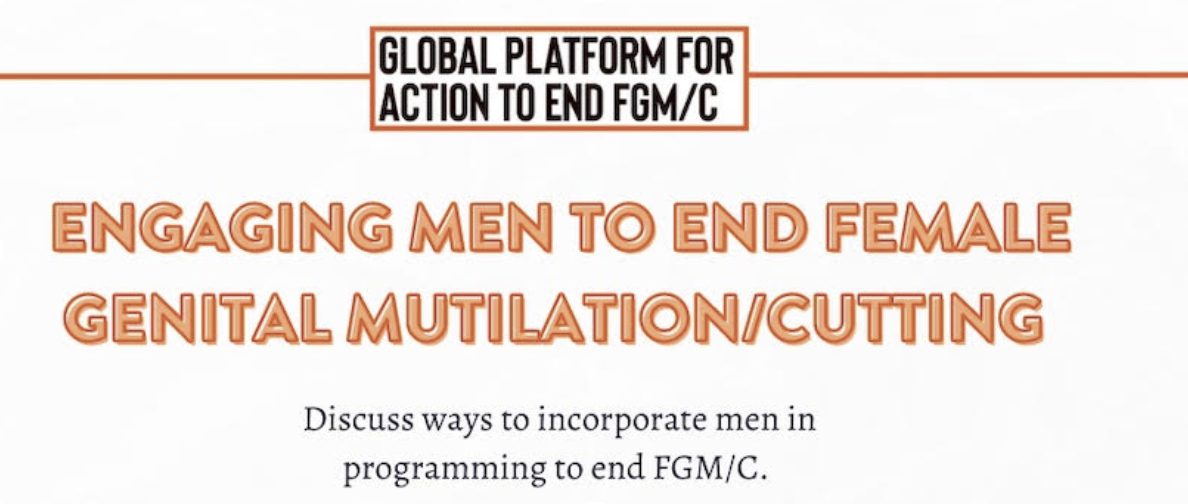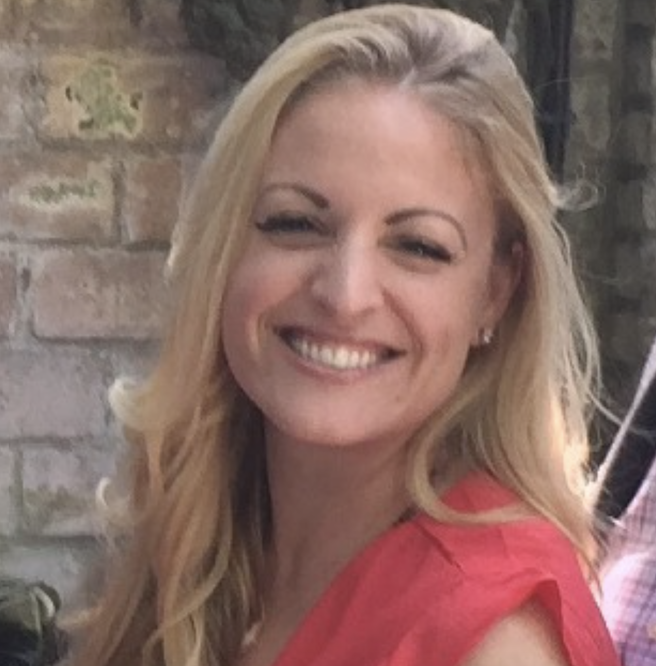By Priyodarshini Chatterjee
In honor of International Women’s Day on March 8th, Sahiyo launched our campaign “Each One, Reach Bhaiyo” to encourage community members to reach out to and educate at least one male-identifying person in their life about female genital cutting (FGC). Through this campaign we involved men in the important work of protecting women and girls. We know that just one conversation can spark a global change toward preventing the human rights violation that is FGC amongst future generations. Learn more here.
In India, there are many forms of gender-based violence that folks like you and me are aware of. It may be domestic violence, dowry death, sexual harassment in workplaces, etc., but one form of gender-based violence, not known publicly until recently is the practice of khatna, or female genital cutting (FGC). I came across this term first when I read an article on the United Nations Development Programme website. A quick search then gave way to a compulsive need for prevention of this practice in a 12-year-old me.
It was much later when news regarding this practice reached me again. It was in the form of a video by a popular Indian think tank, 'Scroll.' In the video, the survivors were voicing their stories. It brought to my attention how harmful this practice is and how spreading awareness was necessary. So, I decided that it had to start from the roots and move to the branches. Thus, starting from home made sense.
Thanks to Sahiyo’s campaign, Each One Reach Bhaiyo, which encourages staff, volunteers, and community members to reach out to and educate at least one male-identifing person in their life about FGC and encourage them to join the Bhaiyo (male ally) program, I finally brought up this topic at my dinner table. My father was very sympathetic, showing concern for the state of women in our country. He expressed how “we don't have any idea what these women face because of their circumstances.” My brother was the next Bhaiyo I talked to. He voiced how it was an unjust and unfair practice. The realities of gender-based violence against women in India hit him hard. He could not fathom it and empathized with the survivors.
I then took this initiative to the Bhaiyos in my university. Being in law school helped the dissemination of knowledge regarding this practice to the men in my school who had never heard about FGC before. They expressed their concern and how they wanted to contribute in their way. I informed them about Sahiyo and how they could navigate from thereon. They were very impressed and grateful to Sahiyo for actively spreading awareness and taking progressive steps towards complete prevention. They had read some pieces on the Sahiyo website to learn more about FGC. As a result of reaching out to them, they made it a point to spread the word ahead and help however they could.
So, thank you so much Sahiyo for bringing in this initiative. The 12-year-old me is ever grateful for this massive progress regarding FGC that you have brought forth in India. The path to take effective steps for prevention has been forged by you. Today, maybe only a handful of Bhaiyos, but tomorrow we all will be a Sahiyo (friend) to this cause.

